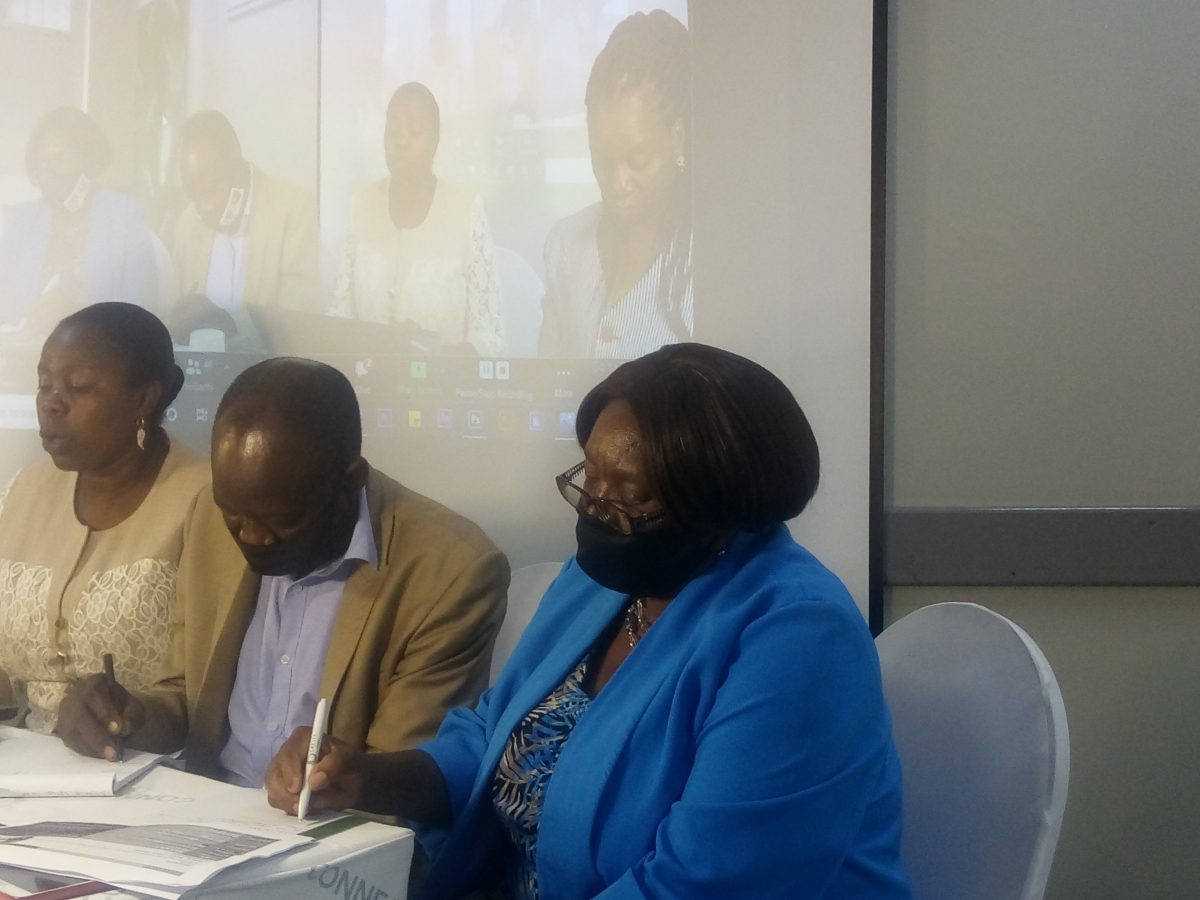The Zimbabwe Network of Early Childhood Actors (ZINECDA) and the Education Coalition of Zimbabwe (ECOZI) have partnered in an initiative to enhance access to quality early childhood education so that vulnerable children are ready for primary education.
The organisations entered into a partnership with the Roger Federer Foundation (RFF), a non-profit making foundation based in Switzerland, to implement a two-year project titled School Readiness Initiative (SRI).
Speaking at the Early Childhood Development Indaba at a two-day workshop that kicked off today at the Cresta Lodge Hotel held under the theme, “ECD achieving equity, inclusivity, and access to quality education in the 2021-2025 Education Sector Strategic Plan (ESSP), Hon. Torerai Moyo, the Member of the National Assembly for Gokwe Chireya who is also a Lecturer in the Faculty of Education at the University of Zimbabwe said educational financing is very important and very indispensable.
“If we do not finance our ECD we are likely to have challenges in terms of quality education. I am a parliamentarian who represents rural schools where you would find some schools are behind and may not have adequate resources which means we need to work together with civil society organizations in ensuring that we lobby for more financing on the education sector particularly issues regarding early child development.
“It’s sad that in the national budget, only 2 percent was allocated to ECD. That’s very little. So my understanding is that we need to seat down and find ways that are progressive. Next week we are going to have public hearings. I belong to two portfolio committees on Primary and secondary education and the Committee on Budget and economic development. So we have four teams that are going to travel nationwide. So my advice to civil society organizations is that we want you to make submissions. Bring your papers because you are the voice of the voiceless. Bring some written information and submit to the committee. You may participate by airing your views on how best to increase finances towards early childhood development,” Hon Moyo saicd.
According to ECOZI National Coordinator, Clemence Tauya Nhliziyo, the project seeks to achieve this objective through enhancing the ownership by government and other relevant stakeholders (the Rural District Councils, District Education Officers, local leadership, school development committees, communities, and parents) of the children’s needs in ECD, the phase of transition into Grade 1, and mobilize them to ensure a better learning environment for young learners in Zimbabwe. ZINECDA/ECOZI focus mainly on national policy advocacy to fulfill the following objectives by working with SRI implementers such as Campaign for Female Education (CAMFED), Child Protection Society (CPS), and Municipal Development Partnership (MDP).
The aim of the project is to:
- Increase awareness about the importance of school readiness and in particular of SDG 4.2 and its reporting framework.
- Conduct an advocacy campaign at the national level including the parliamentarians and senior government officials to influence the development and implementation of conducive policies and oversight.
Tsitsi N. Tuturu, the ECD Co-ordinator for the J.F. Kapnek Trust said as countries make decisions to reopen schools, there are unique considerations related to opening early childhood education (ECD) centers with holistic approaches to nurturing care and learning for young children.
She said the reopening of ECD centres can provide children with much-needed emotional support, learning opportunities.
“Though there will be challenges, young children are highly resilient and adaptive. It’s crucial that schools plan ahead and look at what additional measures they can put in place to help ensure students, teachers, and other staff are safe when they return and communities are confident in sending their students back to school,” Turuturu said.
She called for staggered starting times, break/meal times, and dismissal times to increase physical distancing.
“Alternative school schedules and approaches include having students attending alternative shifts (morning and afternoon) to accommodate smaller class sizes or attending on alternative days.”
She suggested a combination of part-time in-person study in school and learning at home through online learning and said students can access learning materials at home. Tuturu said caregivers can notice, understand, and respond to the child’s signals in a timely and appropriate manner. Responsive caregiving is essential for ensuring children’s health, nutrition, safety, and security, she added.
Mr. Alvord Sithole, a consultant, said the Education Provisions of the Education Amendment Act of 2020 calls on schools to accommodate children with disability: provide inclusive and accessible infrastructure and for the state to provide sanitary wear.
He said that fundraising through charging fees and levies contradicts the provision of free basic education.
“Since there is a deficit of schools, fundraising through charging private for-profit education providers a registration fee and annual levy could end up discouraging investment in this critical area if the fees are too high. There is a need to see ECD as part of basic education in the midterm objective. This policy needs to be adopted and signed urgently to make free basic education a reality,” Mr. Sithole added.






